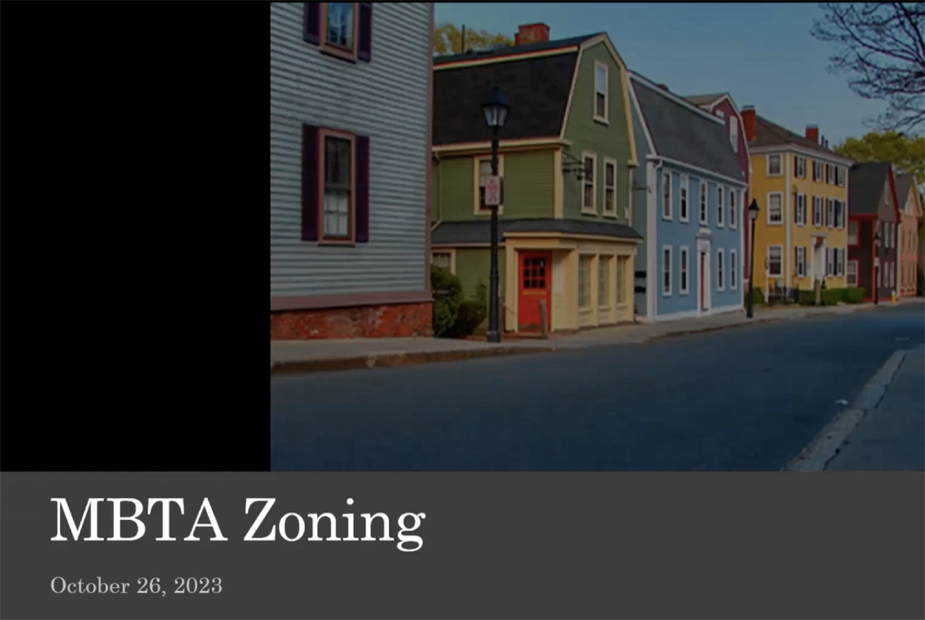School Committee Perspectives: Parents' Role In Schools
Recent months have seen increased discussion throughout the United States about the role parents should play in making decisions about their children’s education. The conversations are often heated, with shouting matches playing out during televised school board meetings and advocates of every persuasion attributing nefarious motives to their counterparts on the other side.
Marblehead is clearly not immune to the forces that are roiling the rest of the country. On June 13, 2023, Veterans Middle School Principal Matt Fox sent an email to parents expressing his “disappointment and frustration” that an anonymous post in a local online community discussion group included curricular materials used in a middle school wellness class. The post originally named a specific teacher and asked: “Has all of society reached an absolute consensus that there is no such thing as biological male and female any longer, such that we are having to explain all of this to our middle school and younger students?”
Principal Fox, in his email, explained that this post “crossed a serious line from a public debate on state and national standards, to a personal attack,” and that the curriculum in question was “guided by local school committee policy while teaching state and national Health standards.”
As Marblehead and other communities seek to manage conflicting perspectives on these types of topics, the discussion is also playing out on the national stage.
The United States House of Representatives passed a bill in March called H.R.5, The Parents Bill of Rights Act. Approved largely on a party-line vote, with all Democrats and a small number of Republicans in opposition, the bill includes provisions to ensure that parents can access the curriculum at their children’s schools, inspect books and other reading materials in the library, review the school budget, receive notice if their child is not a proficient reader, and be alerted to a variety of issues including changes in academic standards, cyberattacks, violent incidents, and issues related to transgender students participating in school sports.
On the other side of the aisle, Democratic Congresswoman Suzanne Bonamici recently introduced the Bill of Rights for Students and Parents, described in her press release as “a direct contrast to recent proposals that are unproductive, burdensome, and pit parents against educators.” Bonamici notes that she conceived of the Bill as an opportunity to “speak out against and end the attacks on public education that are jeopardizing these essential relationships and threatening to make schools a less welcoming place for Black students and other students of color, students with disabilities, LGBTQI+ students, and other marginalized students.” The provisions of the Bill include what is described as a well-rounded education, authentic parental involvement, responsive and inclusive public schools, students’ civil rights, and education and democracy.
Given the prevalence of issues surrounding parents’ role in influencing or being made aware of school curriculum and policies, Marblehead Beacon asked the four candidates for two open seats on the School Committee to provide their perspectives. In previous articles, we covered academic outcomes for Marblehead students and the list of cuts proposed by the Superintendent in case the proposed tax increase currently under consideration does not pass.
For this third and final review of the School Committee candidates, Marblehead Beacon asked:
Some school districts across the country have been implementing a parents’ bill of rights to give parents increased control over and access to information about their children’s education and the curriculum being taught. Do you support this type of effort in Marblehead? Do you think there should be a policy allowing parents to opt their children out of specific lessons? How would you address issues that arise when families in our schools have different approaches to topics like saying the Pledge of Allegiance and sex/gender education?
The candidates’ replies are listed in alphabetical order below, similar to our first and second articles about this race, but this time starting with the third candidate in the rotation.
Several of the responses reference curriculum standards developed by the Massachusetts Department of Elementary and Secondary Education (DESE). Principal Fox, in his letter to parents, also noted that the lesson being discussed in the online post – which asked students to define words including “Gender Queer,” “Transvestite,” “Pansexual,” and “Asexual,” among others – was based on state-defined health education standards. The document responsible for establishing these standards is the Massachusetts Comprehensive Health Curriculum Framework, available on the Department of Education website. This document, which is the one currently in effect, was developed in 1999. The above listed vocabulary does not appear in this version. In 2018, DESE began the process of reviewing and revising this framework, but a final completion date has not yet been released.
Brian Ota
“Public schools in Massachusetts are required to follow basic standards for all subjects as determined by the Department of Elementary and Secondary Education. Educators as well as parents must adhere to these standards. Sex/gender education has always been a sensitive subject for parents. The schools work very closely to develop programs that teach these subjects in an age appropriate manner. It is imperative that the administration gather parental input before developing or choosing a specific curriculum.”
Jenn Schaeffner
“Parents have the right, and frankly the responsibility, to know what their students are being taught in all classes at all levels and in all subjects, including math, science, English, history, and health/wellness. We live in challenging times, with too much animosity between people who disagree with one another. Marblehead must instead be a community that emphasizes empathy and tolerance for a wide variety of perspectives and welcomes families with divergent viewpoints to come together within our public schools to achieve the best possible outcomes for students
In Massachusetts, state law requires public schools to adhere to state-approved curriculum frameworks, and our primary goal within the public schools must be offering our students an academically rigorous education aligned with these standards. At the same time, parents must be welcomed into our school communities with openness and respect, and given the opportunity to review and if necessary opt out of educational content that does not align with their family values.”
Paul Baker
Responded to Marblehead Beacon’s original request but declined to participate.
Sarah Gold
“I do not support these kinds of efforts. Parents have always, and should always, have the ability to opt their child out of specific lessons in the Marblehead schools. The public schools are tasked with educating all students. Instilling a love of learning and critical thinking skills are the values that are taught, not religious or cultural ones. The educational standards that enter into the public school system are dictated by the State Department of Elementary and Secondary Education. We have highly educated professionals in our district who care deeply about the wellbeing of the children in our school buildings. I fully trust in their professionalism within their classroom as they teach these State standards.”
Editor’s note: Jennifer Schaeffner is a founder and editor for Marblehead Beacon but has taken a leave of absence from any role with Marblehead Beacon during her campaign for School Committee.








